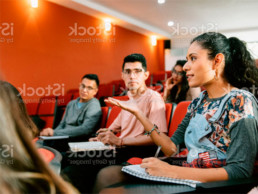Educational InnovationNetwork Key CommunityMembers
Viladecans’ 360º approach to education underpins the idea of an Educational Innovation Network that involves different public and private representatives in a city-wide project. Anybody educates, anywhere at any time. It is understood that learning happens within and out of schools’ walls, and also physically and, increasingly, from and with virtual digital tools.
This education conception makes everybody co-responsible in the teaching-learning process. Bridges between potentially education agents, formal and non-formal, promote collaborative efforts and have a multiplying impact.
With this in view, all ON BOARD partners engaged members from different stakeholders’ groups to participate in the international gatherings, their local planning meetings and in pilot innovative projects.
Teachers and headmasters were obviously the first ones, but other followed: local businesses and the university, entities of all kinds, families, the students themselves… they turned to have a high potential and interest in connecting with each other to improve students’ interest, skills and capacities from a “real world” standpoint and beyond the formal curricula.
Students empowerment & familiesengagement for educationalsuccess
Families
In Viladecans’ schools, parents of the students participate in aspects and decisions of daily school life, for example, the catering service for the school canteen or the after-school activities that take place in the centre, such as sports and leisure. Teachers are used to organise celebrations together with parents and students. This has proved to create collaborative bonds that contribute to strengthening and prestige the centre and its teachers, and to develop a sense of pride and belonging.
Not all ON BOARD cities have the same integration and parental involvement in school life. For some ON BOARD cities teacher-family dialogue is very limited. Most ON BOARD Cities have Families’ Associations or Parents’ Councils, with a diverse capacity of decision and involvement in each city.
In the meeting the Poznan held, families’ representatives were invited to contribute their own insights on the interest and capacity to collaborate with the school.
Some highlights on the parent’s insights and further debate concluded that families see a special interest in expanding their role of supporting their own kids with homework and duties and bridge between the school and their work and life out of the school. They see themselves as active members offering their own knowledge, skills and contacts to enrich and support education and the community.


Students
At the basis of the students’ education success is motivation. All ON BOARD partners know that the student’s direct involvement in education decisions and projects spurs their interest and motivation. Before attending the meeting in Poznan, all cities surveyed students from the schools participating in the ON BOARD project to understand what exactly motivates them and what their expectations are.
Interestingly, their ideas confirmed the conclusions already heard form experts. Students’ feedback showed that taking advantage of their digital, technological and social media skills contribute to heighten their interest. The use of image (videos, tick-tock…), arts (music, dance, theatre…) and other formats of learning and communicating clearly connect with their way of learning.
Exchanging with other schools in the city or elsewhere, was mentioned to contribute to make education more attractive. Finally, taking responsibility in organisations that address their own passions, for example music, arts, social and environmental concerns, is a good way to raise interest. In sum, overcoming the traditional styles of learning strictly form a book and participating in projects that connect them with real life.
As part of their Plan to improve their own Good Practice, the Lead Partner city of Viladecans wants to make students’ voices heard and empower young people so they can participate as members of the Educational Innovation Network.
Voices
Families
NM_51
NM_52
NM_53
NM_54
NM_55
Students
NMS_51
NMS_52
NMS_53
NMS_54
NMS_55
NMS_56
NMS_57
NMS_58
NMS_59
Families
NM_51
NM_52
NM_53
NM_54
NM_55
Students
NMS_51
NMS_52
NMS_53
NMS_54
NMS_55
NMS_56
NMS_57
NMS_58
NMS_59
The content of the Website reflects only the authors view. The Managing Authority and the European Comission are not liable for any use that may be made of the information it contains.

